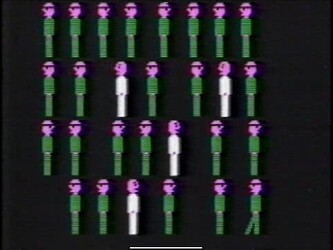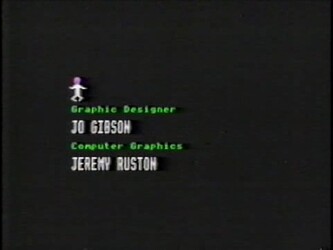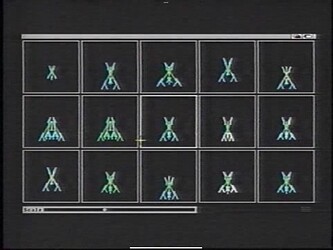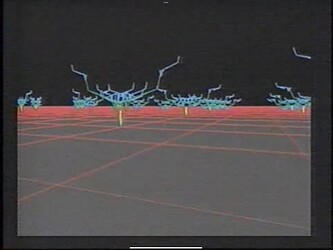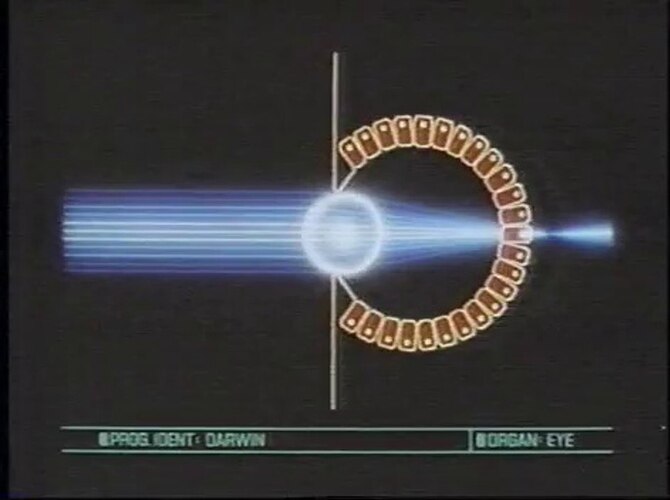Perhaps Darwinism did indeed have a role in the evolution of TiddlyWiki: I might have mentioned this before, but a formative experience for me was working on two BBC Horizon programmes with Richard Dawkins in the 1980s: Nice Guys Finish First and The Blind Watchmaker. The only copies online I can find are on Dailymotion and are linked below.
I worked quite closely with Dawkins, particularly for the second programme. He was kind and considerate to me and I enjoyed the experience very much.
Dawkins was already a well-known author, and was yet to become so broadly controversial. Nonetheless, the main impact on me was to make me see that I needed to look more widely than just science in my quest to understand the world.
For NGFF, I made a simple explanatory animation to demonstrate Dawkin’s idea that cooperation with other individuals could be an evolutionary advantage. I programmed the animation on the BBC Micro, working with a graphic designer on the design of the figures.
I also produced the end credits for the show:
For TBW, I made an implementation of Dawkin’s “biomorph” on the Commodore Amiga to illustrate evolution. Dawkins had already created the basic algorithm for drawing a pattern, I just made it slicker and added a user interface for selecting offspring and editing genes:
I also made a 3D animation of flying through a three dimensional projection of the multidimensional space containing all possible biomorphs which was also used during the opening sequence:
The crazy thing about making the animation was that the Amiga was nowhere near fast enough to render it in realtime. Instead we connected the Amiga up to an expensive videotape machine deep in BBC TV Centre, and recorded it a frame at a time, with the VT operator calling “next” and me pressing the space bar to trigger the next frame.



 however it is certianly a bundle of memes.
however it is certianly a bundle of memes.